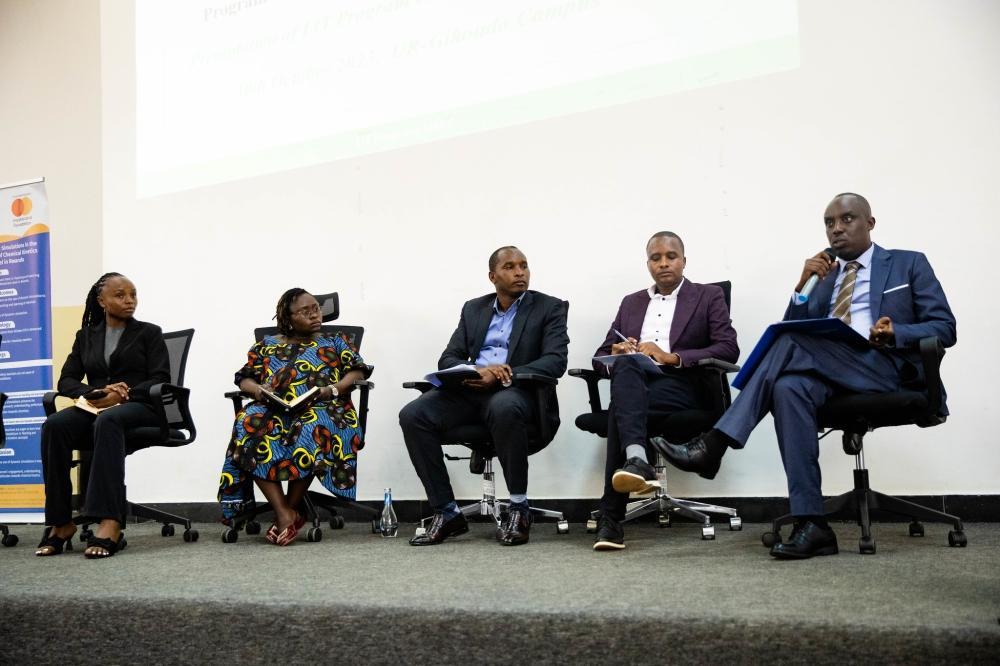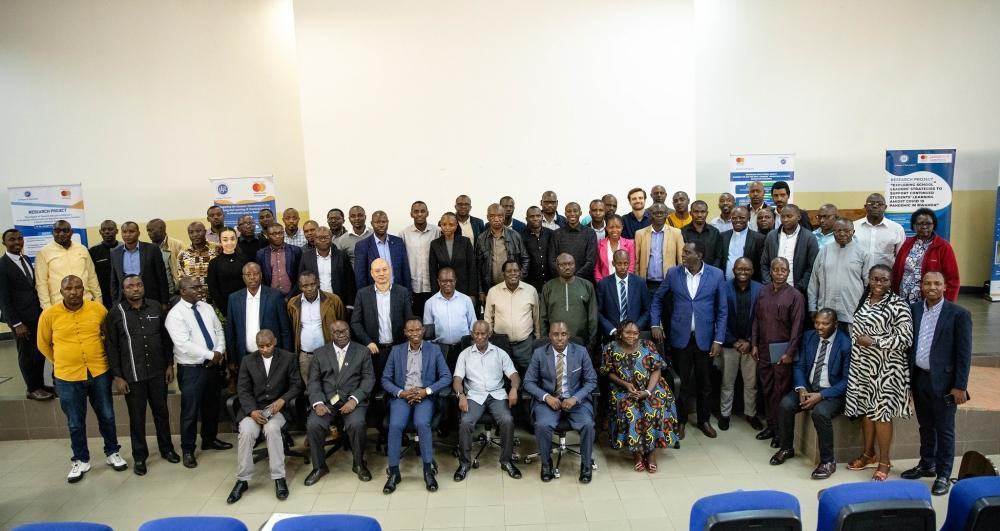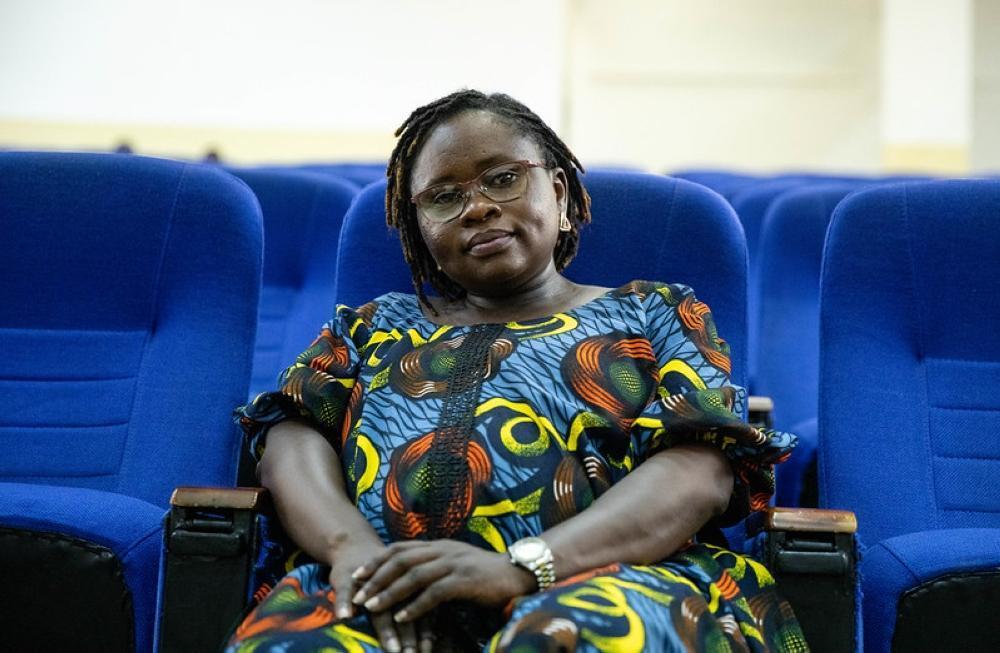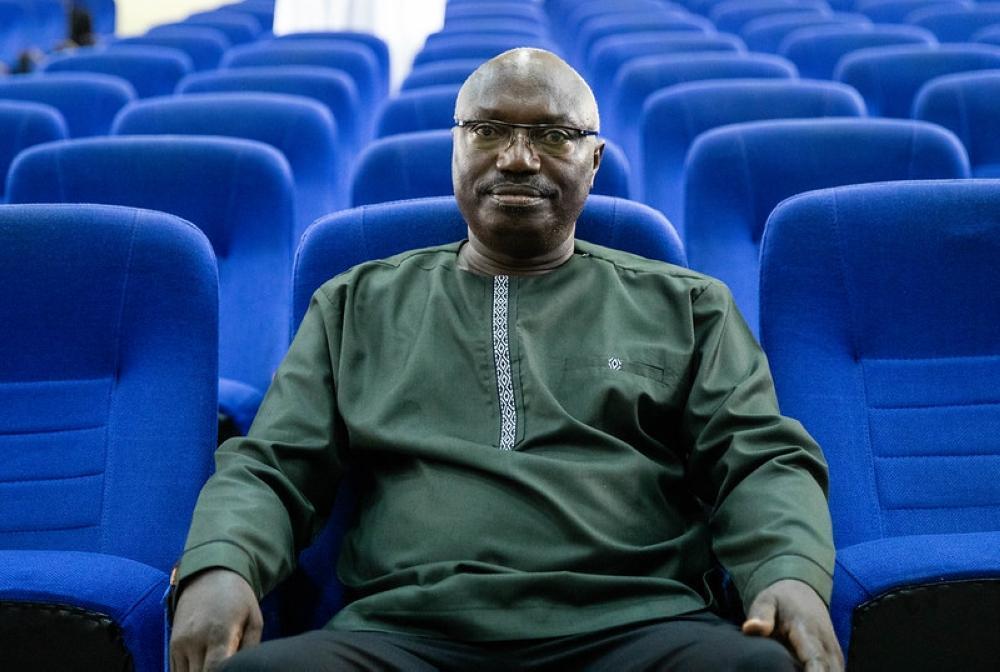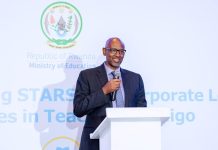Africa-Press – Rwanda. The University of Rwanda – College of Education’s (UR-CE) Leaders in Teaching (LIT) Programme has earned praise from its beneficiaries, who credit the initiative with transforming their professional practice and enriching Rwanda’s education landscape.
Funded by the Mastercard Foundation and implemented by UR-CE between 2018 and 2025, the LIT programme sought to improve teaching and leadership in secondary education through targeted interventions, ranging from Competency-Based Curriculum (CBC) implementation and mentorship for pre-service teachers to ICT integration and research capacity building.
Officials and participants pose for a group photo during the closing ceremony of the Leaders in Teaching (LIT) program.
The implementation started in 2019 following an agreement signed between Mastercard Foundation and the University of Rwanda.
It focused on four components in quest to build the capacity of UR-CE academic staff and pre-service teachers [UR-CE students namely research, ICT, CBC, and practicum to gain school life experience through the visit to schools for lessons observation.
From pre-service teachers and lecturers to seasoned mentors, participants shared powerful testimonies during a panel discussion, on October 30, highlighting the programme’s impact on teaching quality, leadership development, and institutional innovation.
Dr. Jeannette Musengimana
Dr.Jeannette Musengimana, a UR-CE lecturer and researcher, received Rwf 20 million in funding for a research project promoting entrepreneurship among chemistry students in secondary schools.
“My project focused on using chemistry knowledge to create small business initiatives. We linked what students learnt in school to internship skills. These small projects will help them after completing secondary school, especially if they do not get the chance to continue to university,” she said.
She explained that secondary school leavers aged 16 to 24 often struggle to find employment, having studied general education.
“The project trained students in making soaps, juices, and bakery products, along with preservation techniques,” she added.
Implemented in 10 districts—two schools per province and in the City of Kigali—the project trained teachers and students, benefiting at least 200 learners.
“We commend the LIT programme. Without it, we could not have implemented such a project, which requires funding,” she said.
Thirty research projects were funded: three in the first cohort, seven in the second, nine in the third, and 11 in the fourth.
Albine Niyogushimwa, a pre-service teacher from UR-CE Rukara Campus, said the programme prepared her to become a competent teacher.
“This experience built our confidence, familiarised us with school environments, mentors, and students, and prepared us for our careers. We had ample time for practicum in various schools,” she said.
“We were also equipped with digital teaching skills and gained expertise in lesson planning,” she added.
Mentors played a key role in supervising student teachers during school attachments.
Theophile Habanabakize, a mentor and Head of Studies (DoS) at GS Mukarange Catholique, said that before the programme, mentors and learners were unclear about school attachments.
“After training, we know how to guide student teachers, manage classes, engage learners, and use teaching materials effectively. This programme has greatly improved our ability to support student teachers.”
He noted that teachers now use learner-centred methods like play-based learning and group discussions, making lessons more engaging.
“Mentors are more confident in guiding student teachers, offering feedback, modelling good practices, and helping them reflect on lessons,” he said.
He added that inclusive, interactive methods have made learning more enjoyable and meaningful.
“Learners are more active, motivated, and confident. They participate in discussions, group work, and hands-on activities, which has improved performance.”
To sustain these changes, he emphasised the need for continuous professional development, regular mentorship, and peer learning sessions.
Prof. Alphonse Uworwabayeho, a UR-CE lecturer and the coordinator of CBC (1)
Prof. Alphonse Uworwabayeho, a UR-CE lecturer and the coordinator of CBC component in Leaders in Teaching (LIT) Programme , said courses offered during the project were aligned with Competency-Based Curriculum (CBC).
“Lecturers were trained to adjust to Competency-Based Curriculum (CBC). The project’s outcomes will also help train non-UR-CE staff—those from fields like medicine and engineering who lack pedagogical training,” he noted.
Dr.Claude Karegeya, the Acting Principal of the University of Rwanda – College of Education (UR-CE) said the initiative has contributed significantly to enhancing teacher education programmes, promoting evidence-based practice, and building institutional capacity for continuous professional development.
For More News And Analysis About Rwanda Follow Africa-Press

